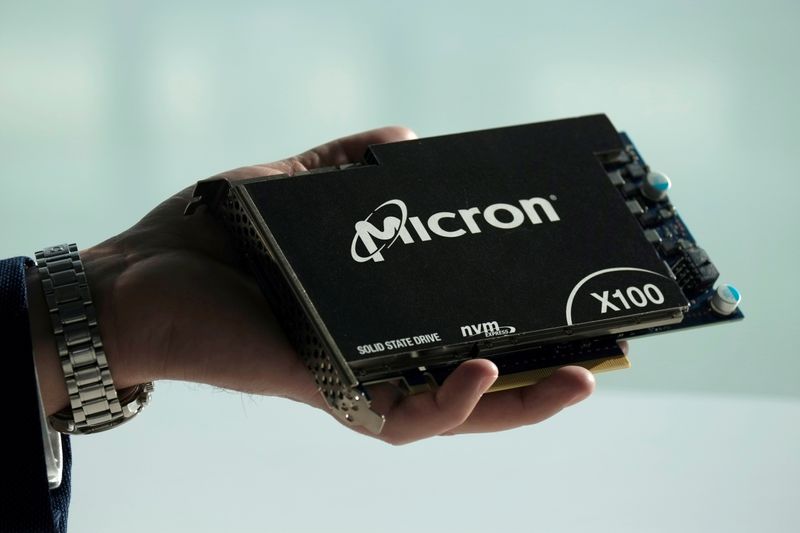Investing.com -- Shares in Micron (NASDAQ:MU) surged by more than 14% in early US trading on Thursday after the chipmaker unveiled current-quarter guidance that was far above analysts' expectations thanks to soaring demand for its memory chips used in artificial intelligence applications.
For its fiscal first quarter, the company said it expects to report adjusted per-share income of $1.74, give or take $0.08, on revenue of $8.70 billion, plus or minus $200 million, compared with Wall Street estimates for $1.58 and $8.35 billion, respectively.
Along with South Korea's SK Hynix and Samsung Electronics, Micron is one of the largest manufacturers of so-called high-bandwidth memory (HBM) chips. HBM is an efficient type of dynamic random access memory chip, or DRAM, which helps power AI-fueled graphics processing units. Shares in SK Hynix (KS:000660) and Samsung Electronics (KS:005930) both rose in Asian trading on Thursday.
Speaking with analysts, Micron chief executive Sanjay Mehrotra said that demand from the firm's data center customers "continues to be strong and customer inventory levels are healthy."
Strength in HBM demand has helped to ease a blow from an oversupply of memory chips in the personal computing and smartphone markets, which have been hit by broader economic uncertainty that have led businesses and consumers to rein in spending.
Analysts at Stifel said the guidance was "much better-than-feared" and ran contrary to reduced projections heading into Micron's latest quarterly results.
"[S]trength in data center demand is more than offsetting near-term softness in the consumer-centric [personal computing] and phone markets," the Stifel analysts wrote in a note to clients.
"Micron’s outlook and upbeat commentary should help soothe some concerns that the memory cycle is teetering."
Adjusted fourth-quarter earnings of $1.18 per diluted share on revenue of $7.75 billion, Micron announced. Analysts polled by Investing.com anticipated a adjusted profit per share of $1.11 a share on revenue of $7.65 billion.
(Yasin Ebrahim and Reuters contributed reporting.)
